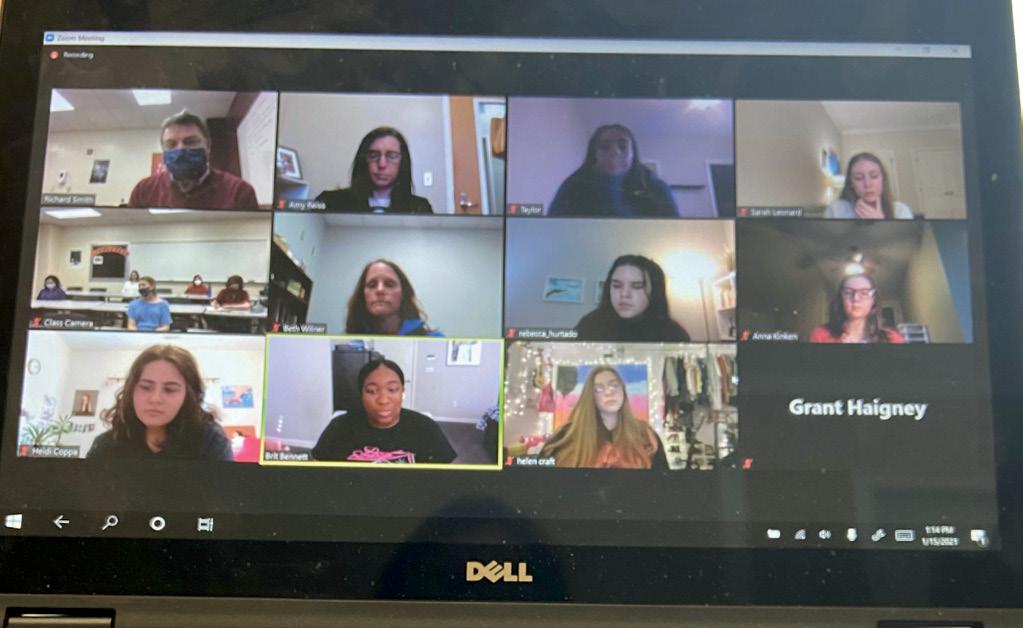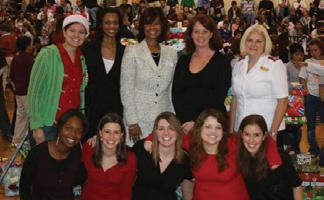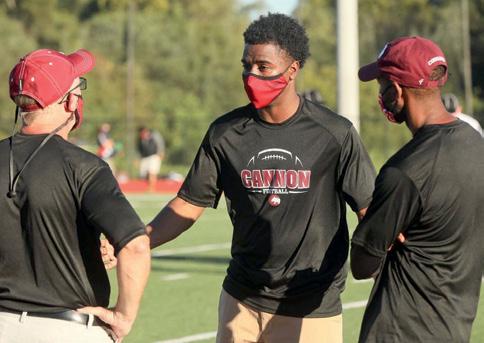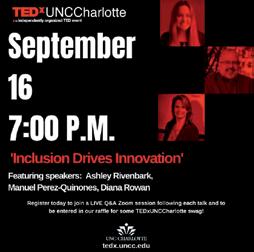
46 minute read
Leading by Example
How Our Community Has Stepped Up as Leaders in a Year of Unpredictability and Strife
In a year of a global pandemic, social unrest, political divisiveness, changes in learning environments—and even murder hornets—it’s hard to imagine how ANYONE could emerge on the other side as not just a survivor…but a leader. However, that was exactly the case with multiple members of our community over the past year, with both students and teachers stepping up in impressive ways. Whether it was an effort to redeem an unfair social condition or using the quarantine time to chart a course for a new business, our Cougars refused to sit on their laurels as the world (crazily) spun on its axis. Read on to meet some of these impressive people and learn how each one is leading by example.
Deven Dighe ’22 (above) and Chase Hensley ’23 (left)
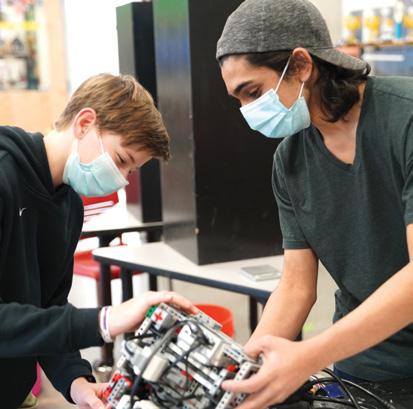
These Mentors Have It Down to a Science
How Deven Dighe ’22 and Chase Hensley ’23 are Leading the Next Generation of Brainy Yaks
When Chase Hensley ’23 was selected as a Brainy Yak in the fifth grade, he was tasked with a less than glamorous job. The Yaks were creating a sound diffuser made of K-Cups, and Chase’s job…was to dumpster dive for the coffee filters so the group had enough to create the project.
Chase has come a long way from those days back in 2015. Now a sophomore, he and Deven Dighe ’22 are both in the Upper School, but they have spent the last two years helping the Middle School robotics team, the Brainy Yaks.
According to Brainy Yaks advisor Mr. Leigh Northrup, Deven and Chase were natural choices to stay on with the program after they graduated Middle School. “They were both all-stars during their time in Yaks,” he said.
Deven and Chase worked with the Yaks by helping them program robots and create an innovation project each year. Deven mentored the Brainy Yaks during their run for a world championship back in 2019, when they spent close to a year researching how to prevent circadian rhythm disruptions in astronauts on the International Space Station. The work the Yaks presented at regional and state competitions, as well as points earned for building and executing a robot run, earned them a spot on the international stage.
Deven joined the Yaks for the worlds event in West Virginia. “At the last minute, their code stopped working, and so I had to help them work it out,” he said. When asked if that was stressful, Deven’s nonchalant response? “The stress is fun.”
“It’s rewarding to watch these kids grow up, knowing they are getting prepared to go on to Upper School robotics,” he said.
Chase says he has enjoyed mentoring the younger kids because they had become friends during their time on the team together. He also learned a lesson heralded by teachers everywhere.
“Middle Schoolers are hard to teach,” he said. “They can be really silly.” (Editor’s Note – Chase stated he has decided he could never be a Middle School teacher.)
“It can be crazy and fun, but in order for them to learn something, they need to be focused, and you can walk alongside them,” Chase said.
Mr. Northrup sings the boys’ praises and feels their leadership has contributed greatly to the team’s growth. “They are not just supporting younger students but teaching those same students how to be amazing leaders and mentors themselves,” Mr. Northrup said.
“Deven and Chase have set a new bar for how to support Cannon School programs and what mentorship means in our community.”
Planting SEEDS of Change
Dean Michelle Zelaya and Mrs. Stephanie Ranson pilot an innovative new program at Cannon
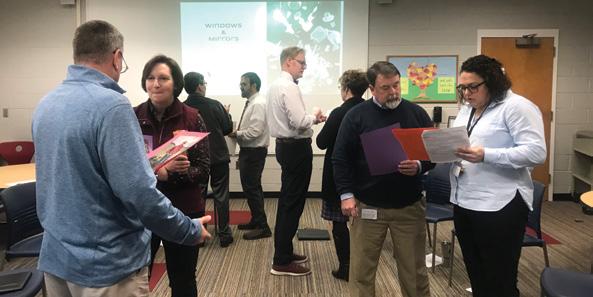
Mrs. Stephanie Ranson and Dean Michelle Zelaya lead the Leadership Team through a SEED exercise.
We all learned it in kindergarten science class—plant a seed in a cup of soil, care for it—in a few weeks, you’ll have a plant.
That lesson also applies to other areas of life, as some Cannon faculty and staff members learned when they participated in the SEED project. SEED (Seeking Educational Equity and Diversity) partners with schools, organizations, and communities to develop leaders who guide their peers in conversational communities to drive personal, organizational, and societal change toward social justice. The program came to Cannon via Dean Michelle Zelaya, Upper School Associate Dean of Students and Equity and Belonginess Coordinator, and Mrs. Stephanie Ranson, Middle School Teacher and Service Learning Coordinator. Both have been interested and involved with equity and inclusion work for many years, leading multiple initiatives in the arena. The two had heard about SEED through teachers from other schools, and after a rigorous application process, headed out to California in 2019 to attend a New Leaders Week.
Dean Zelaya was quick to point out that the week was intense. “This was not Diversity 101; it was a 500-level course,” she said.
After finishing their training, Dean Zelaya and Mrs. Ranson returned to Cannon and designed a curriculum for fifteen faculty and staff members in the first SEED project cohort at the end of 2019. The ten-week program’s unique methodology involved personal reflection and testimony, listening to others' voices, and learning experientially and collectively, in the context of each participant’s intersecting identities.
“In my experience, I’ve found that people are really hungry for conversations that help them understand these big topics around equity and inclusion, but they reported that they weren't getting what they need from traditional diversity training,” said Mrs. Ranson.
“SEED offers something very unique. It doesn't prescribe the answers. It’s not a quick fix. But it offers possibilities of ground up change.”
Mrs. Kathy Olson, Assistant to the Head of Middle School, was a Cohort One participant. “Our time together provided an opportunity to truly listen, to fully share, and to shed light on our different experiences and perspectives,” she said. “There was laughter, and there were tears. There was a depth of conversation that forged a level of respect and trust that was most unexpected.”
“We were a group of Lower, Middle, and Upper School teachers and staff; we became a SEED family. The SEED foundation of respect and trust is what we need to flourish as a community,” Mrs. Olson continued.
Lower School teacher Miss Megan Kelly concurred. “Participating in the SEED program enabled me to reflect on my own personal bias, relationships, and true understanding of the world around me,” she said.
“I appreciate all that the SEED program has done for me and the educational opportunity it provides. I continue to utilize the skills and knowledge I gained every day,” said Miss Kelly.
The feedback from other members of the first cohort was also overwhelmingly positive. “We now have a slew of teachers, staff members, and administrators who are looking at the world through a different lens,” said Mrs. Ranson. “They’re thinking about how they can reach their students better and seeing them as individuals.”
“SEED is more than just professional development; it’s personal work,” said Dean Zelaya. “The stories we are sharing are important to have, so that we can better understand each other. The more we understand each other, the better our relationships will be—including the ones we have with our students.”
Unity Through Understanding
Blair Henderson ’26 Starts a Middle School Affinity Group
When Blair Henderson ’26 came to Cannon in the fall of 2019, she knew early on that she would love to create a space where students of color could gather and share. With the help of Middle School Teacher Mrs. Stephanie Ranson, Blair did just that—and has been leading the group, even virtually, ever since.
Q: I understand that you were new to Cannon last year. When you came here, why did you think it was important to create an affinity group?
A: It was important to me because at my old school, it was a space for students of color to come and feel a sense of community and belonging. I was new, so I thought that was a great way for me to make new friends and have a group of people to support me.
Q: Walk us through the process of getting the group started.
A: It just started out with me talking to Mrs. Ranson about my old school and how we did things differently there. I told her about my affinity group and asked if we had one. She said, “No, but we can start one.” At first, I was a little scared because I was new, so I did not know what to expect.
Q: What does a typical meeting look like?
A: This year, it has been a little harder to get together on Zoom during COVID, so usually on a Friday we will get together during our lunch break and the group leaders will have a topic for us to talk about. The space is very inviting, and we usually share stories and talk through stuff. It’s been a challenge this year because we all have different schedules and sometimes it is hard to coordinate a time.
Q: What have been the rewards of starting a group like this one?
A: Some rewards are my friendship with the people in the group. We have created such a close bond; I think because we all have something in common to relate to.
Q: What else do you hope to accomplish with an initiative like this?
A: A bond with other people so we can have a sense of community.
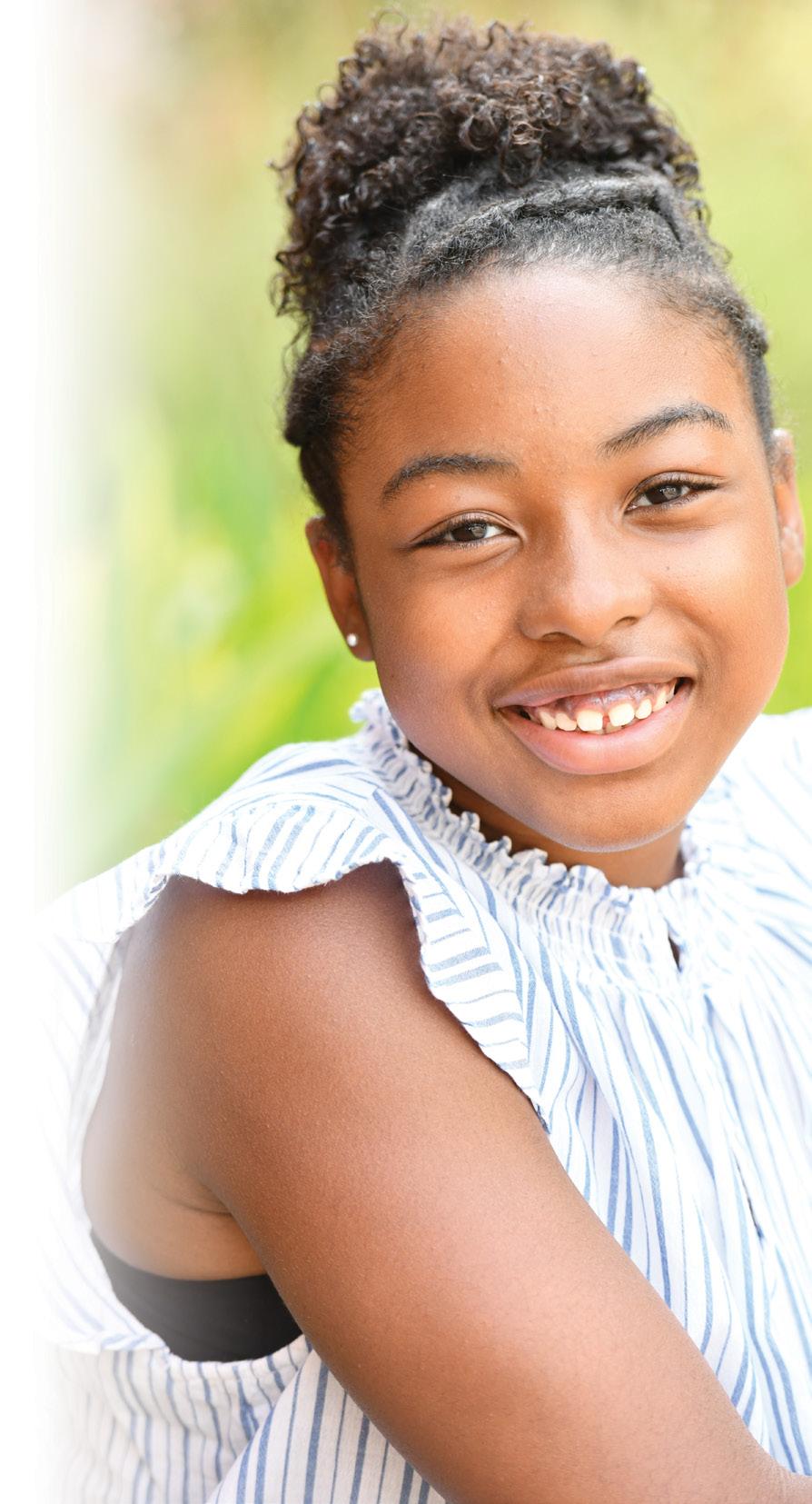
Blair says they would love if other Middle School students would get involved. For more information, you can email her at bhenderson@cannonschool.org.
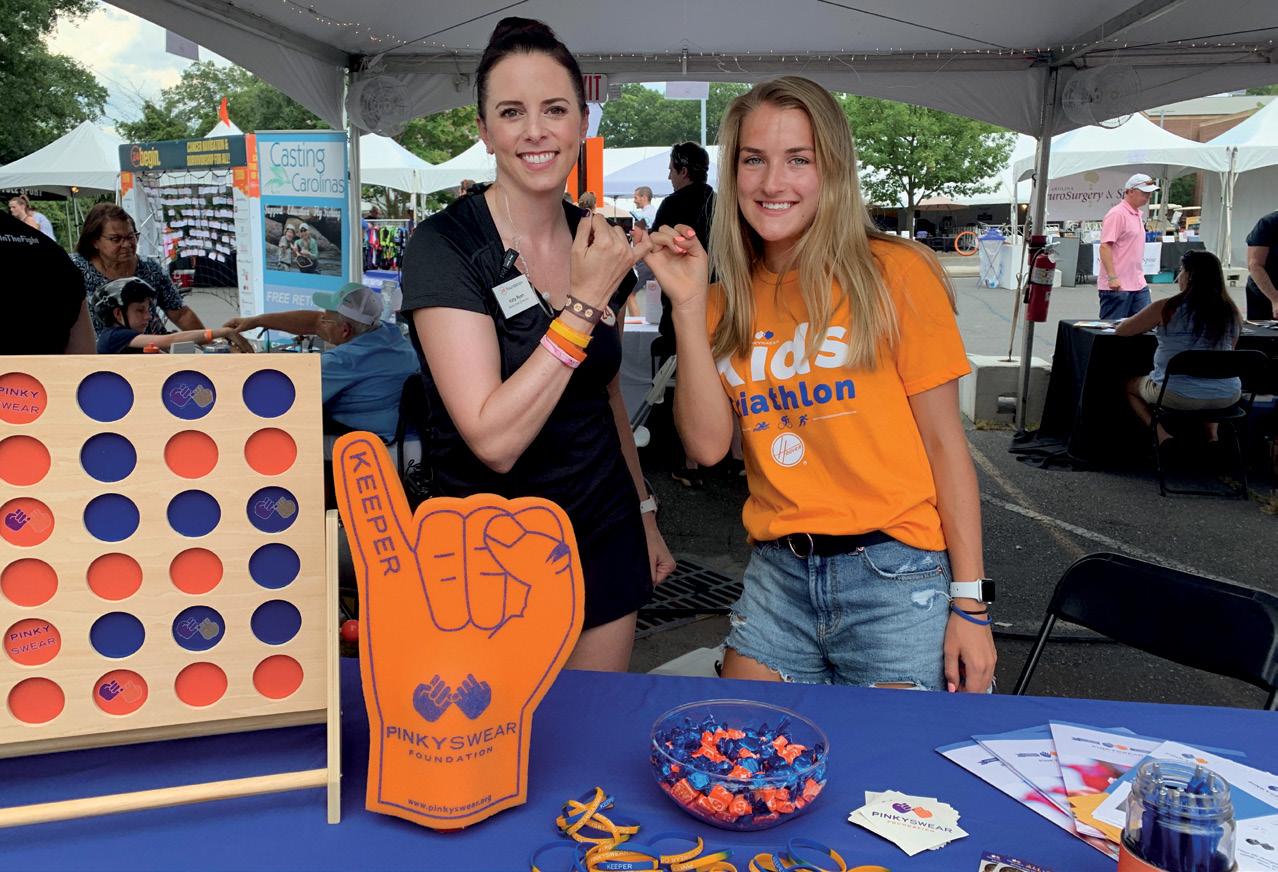
Caring for Kids with Cancer
Many of our Cougars didn’t necessarily set out to lead, but rather to serve others…and wound up becoming an inspiration along the way. Izzie Gosling ’21 is a perfect example of taking a cause that hit close to home and creating a movement with far-reaching effects. Read on to learn how her work with the Pinky Swear Foundation has helped benefit children with cancer, as well as inspire others to follow her lead.
Q: How and when did you become involved with the Pinky Swear Foundation?
A: I have been working with the Pinky Swear Foundation (PSF) since I was 12 years old. (Izzie is a now a senior.) My soccer coach’s son was diagnosed with cancer, and the entire soccer club rallied together to support his family. It was incredibly difficult watching Dalton and his family struggle emotionally and financially, so after learning that PSF was helping to cover their costs, I knew wanted to make a greater contribution to the cause and get more directly involved.
Q: What have been some of your tasks/accomplishments with the organization thus far?
A: For the past five years I have served as a member of the PSF Youth Leadership Council (YLC), which organizes and volunteers at fundraising events, plans parties for the families the foundation supports, and raises awareness in various ways.
Last year I started a Pinky Swear Club here at Cannon, which has held food/supply drives, fundraising events, and made cards for cancer patients. I have also been working with executive members of the foundation to improve the
effectiveness of the YLC and establish a mentorship program within the council.
Finally, this summer I took several shaving cream pies to the face to help launch a virtual fundraising campaign, #CancerIsMessy, in lieu of the usual events like the annual triathlon that weren’t possible due to COVID-19.
Q: What has involvment with PSF taught you about leadership?
A: Being involved with Pinky Swear has taught me that being a leader means creating opportunities for others to demonstrate leadership and take on those roles. This year I took on the job of helping to plan the monthly YLC meetings and to transition them from being adultled to member-led, with each member leading a different segment of the meeting. I, along with the two other seniors, introduced this idea by leading the first meeting, and then passed on our roles to other members to lead the next meeting. It was far more rewarding seeing the member I had passed on my role to present in the next meeting than doing it myself.
I want to leave the YLC confident in the contribution I have made, and I think I have done that by preparing the younger members to take on bigger leadership roles. Overall, it has taught me that the best leaders will mentor even better ones to fill their shoes, and that there is always something to learn from others.
Q: What’s an important lesson you’ve learned from your involvement with Pinky Swear? A: An important lesson I have learned is the importance of reflection as a leader. One fundraiser I have held every year since I started high school is a dress down day for National Pinky Swear Day. Each year has been more successful than the last because I reflected on the weaknesses of the event and how it could be improved. More importantly, I learned that reflection is even more effective when done with a team who might be able to see things from a different perspective than you in order to have more success in the future.
As I reflect on my work with PSF, I have also learned the importance of resilience and being committed if you really want to make a change or see an idea come to fruition. Turning ideas into real events is one of the greatest challenges for the YLC, but it has taught me not to give up when faced with minor setbacks and that if you are really dedicated, you can make it happen.
Q: Is there anything else you’d like to share about your work with the Pinky Swear Foundation?
A: The motto of the PSF YLC is “Kids Helping Kids,” and I think that is a perfect reflection of the idea of leading by example. To me, the purpose of leading by example is to make it easier for others to follow you in a positive direction, and there is no doubt about the influence that peers have on one another.
My work with Pinky Swear has given me the reward of being a role model to younger YLC members and learning from other leaders, while giving back to families and their children who are facing extreme challenges. I continue working with Pinky Swear because I have seen the incredible impact that even the smallest gesture can have on those who are enduring difficult times, and that no act of kindness is too small.
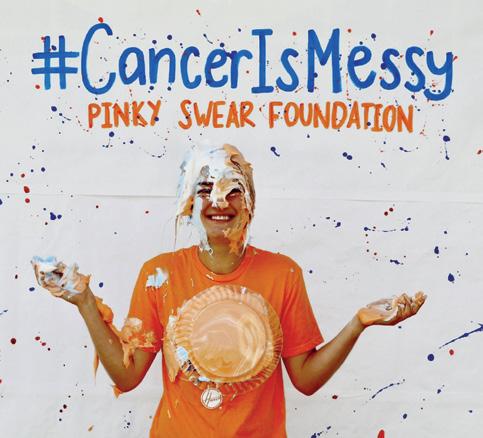
Interested in learning more about the Pinky Swear Foundation or helping out? Visit www.pinkyswear.org, or email Izzie at igosling@cannonschool.org.
Going for Goal: How Some Resourceful Students Jump-Started Cannon’s Girls Lacrosse Program
Sometimes the word “no” is just a jumping-off point.
Such was the case for Morgan Stilphen ’20. Back when she was a sophomore at Cannon, she set about trying to start a girls lacrosse program. She arranged an interest meeting in which dozens of girls attended. But ultimately, the time wasn’t right—not enough resources, and the fear that it would pull athletes from other sports.
Morgan tried again junior year. Same answer.
But the third time, when Morgan was a senior, was a different story. The elimination of the JV girls’ soccer team freed up athletes, and Morgan and Kate Nelson ’20 decided to try a different approach—form a club team. (A club sport is a registered student organization intended to promote interest.) When they talked to Dean Michelle Zelaya about the possibility, she informed them that two other girls—Alivia Calabrase ’21 and Bella Edmondson ’21—had approached her with the same idea.
And so it began.
The girls set up a booth during club fair in the fall, and to their delight, dozens of girls were interested. They ordered uniforms and arranged practices with the help of parents Mrs. Brenda Wilson, Mrs. Heather Brown, and Mrs. Wendy Benz. But as is the case with any fledgling program, there were plenty of challenges—such as finding practice space. With so many spring teams, the girls often practiced at Dorton Park or on the tennis courts.
Just as the club team was hitting its groove…along came COVID to end the fun. And while that might have been the ending of one chapter, it became the beginning of another. In the fall of 2020, Alivia and Bella—now seniors— approached the new Director of Athletics, Ms. Katie LaRue, asking about the possibility of offering girls lacrosse at the varsity level. Ms. LaRue had already had two visitors asking the same question—Addison Maynor and Maggie Murphy, both ’27.
“There had been growing interest in girls lacrosse within the Cannon community,” said Ms. LaRue. Finally, it was the right time to add the sport to the list of spring offerings at the Middle School and varsity level.
“Based on the passion and teamwork demonstrated by these young women, as well as Cannon’s research to ensure a new team will be sustainable, this is an exciting opportunity for our female student-athletes, their families, and our school,” said Ms. LaRue. The team will begin play this spring.
So, how did it feel for the girls who worked so hard to start the program? “It’s amazing that all of our hard work and planning is becoming a reality,” said Bella. “When we were putting the club together last year, we thought an NCISAA team might be a possibility down the road, but we’re so excited that it’s going to happen while we’re here, as seniors.” “We’ve worked hard and invested our time on behalf of the girls here now, and the girls who will be the sport’s future,” said Alivia. “It feels so great that we are giving younger girls an opportunity to play this sport and be successful.”
Morgan—who has graduated and is now away at college— was overjoyed when she heard the news. Even though she won’t get a chance to play as a Cougar, she is proud to have helped set the path for the program.
“We were able to work with the girls, encourage and teach them the importance of women’s sports, and the value of that is beyond measure,” she said.
“I never really realized how much this club meant to some of the girls that played. I was at dinner one night and two parents approached me about how much the club meant to their daughter and how it helped her tremendously with confidence and friendships. I never would have known the impact the club had on her in such a short amount time if her parents hadn’t told me. Which shows how inclusive and fun these girls are!”
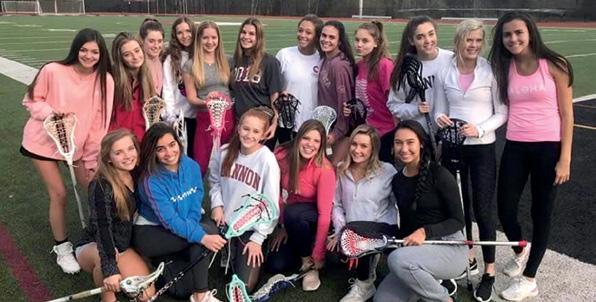
Girls lacrosse will begin playing at the Middle School and varsity level this spring.
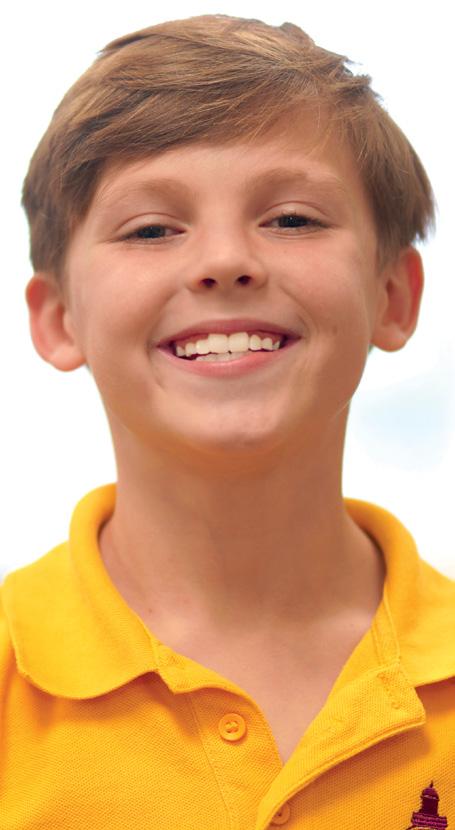
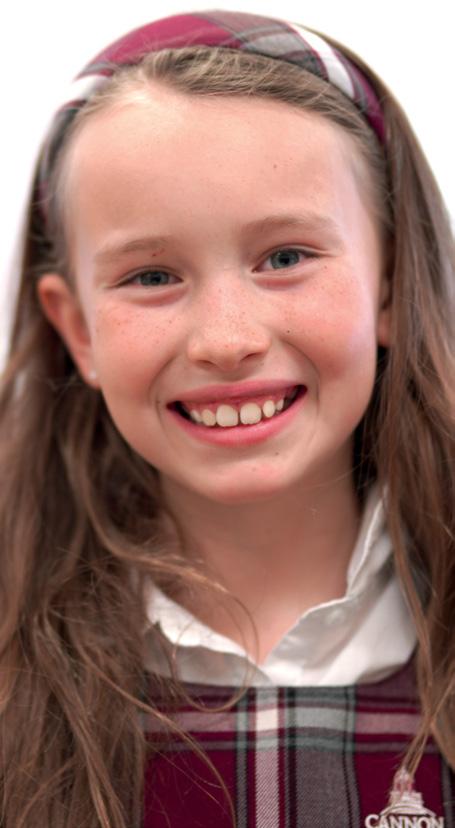
Politically Correct
Orietta Grady ’29 and Brooks Daviet ’29 Represent Lower School on Student Council
We the People! Back on Election Day in November, Lower School students seized the opportunity to “go to the polls” (in this case, voting booths), and select two fourth graders to represent them on the Lower School Student Council. Candidates had given speeches as to why they would be the best choice for change. The winners? President Orietta Grady and Vice President Brooks Daviet. Here’s what they had to say about serving other students.
Q: Why did you want to run for Student Council?
A (Orietta): I had always wanted to be part of Student Council. I thought it would be fun to participate, and I was glad to have the chance to make our school a better place.
A (Brooks): I wanted to represent Lower School and be a good example for others.
Q: What do you hope to accomplish as a representative on Student Council?
A (Orietta): One thing I really want to accomplish during this school year is to bring back cookie day. A lot of kids have asked me to help bring it back and I would like to do so. I also want to make a school garden where we can plant fruits and veggies to help people in need. Many friends in the Lower School wanted to do this last year. I will need a lot of help from students, teachers and parents to make this wish come true.
A (Brooks): I’d like for us to have better equipment at recess. And I just want to be a voice that can represent other Lower School students.
Q: You recently participated in the interview process when we were hiring a new Head of Safety and Security. What was that like?
A (Orietta): It felt good to be doing something that will affect the whole school. It was fun to hang out with friends and get to know other kids in other grades. I liked hearing about the security officers’ lives and experiences. I learned about their job and how they would protect us and do anything to keep us safe.
A (Brooks): It was pretty cool meeting kids from other grades and interviewing the candidates. I felt like we had a hand in something big, and that we were making a difference.
Q: What do you think makes a good leader?
A (Orietta): I think a good leader is someone who involves their community and doesn't make decisions alone. They follow their core values and try to make good changes.
A (Brooks): A leader models what is right, like how to walk in the hallways or how to pick up trash that gets left behind. They show integrity in everything they do.
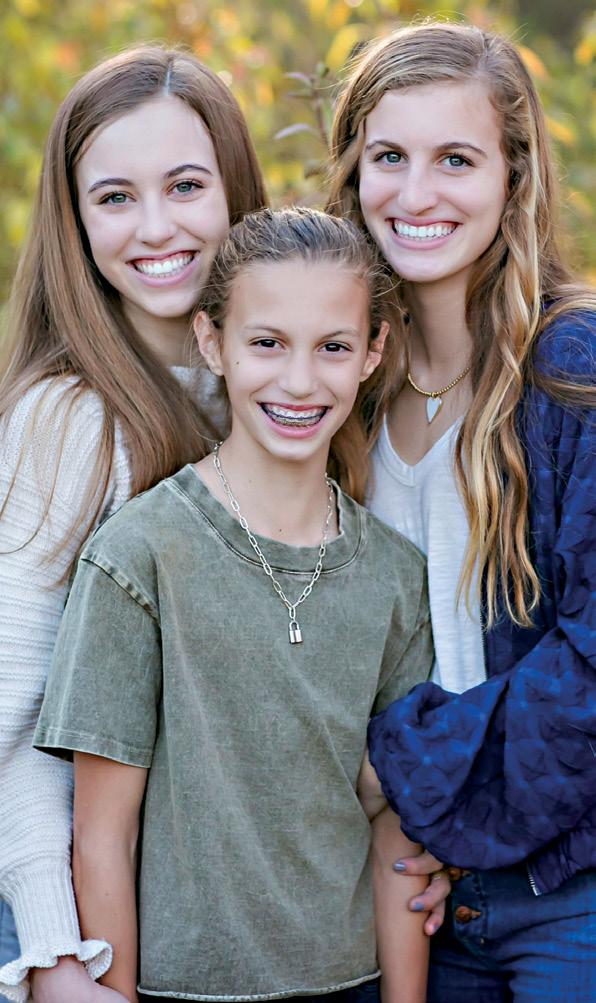
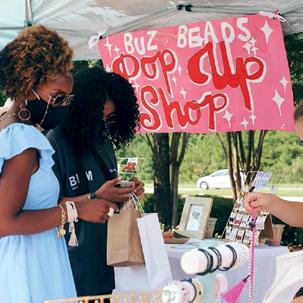

The Busy Busby Sisters Set a Gold Standard with Buzbeads
Back at the beginning of quarantine, it seemed like everyone was picking up a hobby—knitting, baking, photography. The Busby sisters, Emily ’22, Kathryn ’24, and Brooke ’27, were no exception and decided to try something new as well—jewelry making. After multiple YouTube tutorials, how-to articles, and many long hours, they wound up with bracelets, necklaces, and something especially sparkly—a thriving new business called “Buzbeads.”
The Busbys weren’t necessarily well-versed in the art of jewelry making before the pandemic (although Brooke credits the bus rides to Adventure Camp for sparking her early endeavors in paracord bracelet making), but it seemed like a good way to pass the long hours of quarantine. “Making jewelry was a fun project and a great creative outlet during the days we spent at home together,” said Kathryn.
The girls decided to take their hobby a step further and create a business called—what else?—Buzbeads. That’s when the real “work” began.
Getting Started
“The main challenge we faced in the beginning was learning how to run a business,” said Emily. “We had the passion for the products we were creating, but we didn’t know how to go about the logistics of launching a company. It took a lot of research.”
“There’s definitely a learning curve when it comes to business, from learning about taxes, the different vendor platforms like Etsy and Shopify, shipping, creating inventory, etc. We had no clue what we were doing,” Emily continued.
The girls learned the same way all entrepreneurs do—on their feet. “We’ve learned so much along the way!” Emily said. “Buzbeads has been a window into the real world of what it might be like to run a bigger business. It’s taught me how to build a strong bond with customers, be true to my word, build trust, and learn to accept feedback to improve.”
Social in a Time of Distancing
Buzbeads quickly took off, thanks in large part to a strong social media presence the girls built. They quickly curated a gorgeous Instagram account, amassing over 2,000 followers.
“In a world where social media is popular, having an online presence is important! It’s so fun to be creative on our platform, engage with our followers, and meet new people,” said Brooke.
“Getting better at marketing and using Instagram to share our products is a big part of helping to grow our business,” said Kathryn. “Throughout the past few months, we have learned so much about taking pictures, using social media to engage new followers, interacting with other brands through giveaways, and getting guidance and advice from more experienced small businesses owners. Without learning along the way, Buzbeads would not be at the point that it is now. I am excited to keep improving in the world of marketing and social media!”
All in the Family
Undoubtedly, everyone wound up spending more time with their families throughout the pandemic. So, in a time of intense “togetherness,” how did the Busby girls navigate working with each other as well?
“Working together as siblings can be both a blessing and a curse,” said Emily. “It definitely works to our advantage most of the time, since we’re generally on the same wavelength when it comes to business decisions. While we get along well, like any siblings, we don’t always agree—we make lots of compromises!”
“I feel like when you’re working with someone closely, there can be hesitation to give your true opinions because you don’t want to hurt their feelings. Working with my siblings is different, though, because we know each other’s personalities and won’t take things the wrong way. We’re able to lay everything out on the table and work together well. Running a sister-owned company has brought us closer together and allowed us to bond on a deeper level through this pandemic and I am so grateful for that!”
Giving Back
The Busby girls always knew they wanted Buzbeads to serve more than just themselves, so last fall they decided to donate $1 from each sale to a monthly rotating charity which they found deserving. Recipients have included More Love Letters, an organization that allows people around the world to send handwritten letters to those who are in need of some extra love and support, the Humane Society of Charlotte, and the National Alliance on Mental Illness, where financial contributions went toward supporting individuals and families affected by mental illnesses through providing advocacy, education, and awareness to the public. “We all agreed that it was the right thing to do and that it felt nice to support our favorite charities,” said Brooke.
Leadership Lessons
Each of the Busby girls has taken away different lessons in leadership based on the Buzbeads experience. “I have learned the importance of being accountable for the tasks and commitments that I take on and how being responsible for my own actions affects my sisters and our business,” said Kathryn. Brooke said she’s learned that when you work together, you can accomplish more than what you could on your own, as well as the importance of leaning on each other to help get things done on time.
Emily reflected on the lesson leadership always teaches… dealing with the fact that not every effort is a roaring success from the get-go. “I’ve discovered that it’s important for my sisters and me to take personal responsibility for every failure in our business, not just our successes. As entrepreneurs, we’re constantly reflecting on our decisions and identifying what went well and what could be improved upon for next time. We look at everything as an opportunity for growth, which I think is a crucial aspect of leadership.”
Emily also feels that the Cannon experience has helped with their business success. “I have learned so much about leadership and executive functioning skills at Cannon, from advisory activities in Middle School to Dean Booker’s Leadership Lunches and many Student Life lessons. We feel like our experiences at Cannon have prepared us well to launch a business and stay on top of all of the details required to maintain it.”
Parting Thoughts
All three Busbys agree—taking a quarantine project and making it a thriving business has been an experience like no other, and each is grateful for the journey and the people who have supported them along the way. Emily left the following advice for other young entrepreneurs: “If you’re wanting to embark on an entrepreneurial journey, remember that growth happens when you step out of your comfort zone and try new things! I’ve learned that you can’t overthink— take calculated risks and put yourself out there. Even if you aren’t totally prepared (we definitely weren’t!), go for it and dive in!”
You can learn more about Buzbeads on their website, www.buzbeads.com, or on Instagram at www.instagram.com/buzbeads.
In Remembrance of a Friend
Four Girls Help Change a Young Boy’s Life
In rural Eastern North Carolina, a young boy named Amos throws a stick to his dog, HONOR. Amos and HONOR may look like any other child and pet duo, but there is more there than first meets the eye. Amos is a child with special needs, and HONOR is his reliable service dog, there to provide both comfort and support. The scene, in part, is thanks to an initiative led by four of our Upper School students—Caroline Bentley, Sarah Frances Combs, Ainsley Edmiston, and Nadia Ristich, all ’23. The four girls led a Pura Vida bracelet sale in honor of their dear friend and fellow Cannon classmate, Claire Miley, who died in July of 2019.
“We wanted to do something to remember Claire,” said Nadia. With the help of Claire’s mother, Allison Miley, the girls decided to design Pura Vida bracelets with different colored strands that symbolized a memory of Claire. “It was a way to continue to show Claire love,” said Ainsley.
The girls ordered the bracelets in March—just as COVID hit. The project had to be put on the back burner until the fall, and the new hybrid learning model proved to be a challenging situation to navigate as the four girls tried to plan logistics. “Caroline, Ainsley, and Sarah are all in the same last name group. I’m the only one who’s not,” said Nadia. “So it was hard. There were a lot of Zoom calls and texts and group chats to make sure we were all on the same page.”
“We wound up figuring out the best way to communicate and move forward, but COVID was definitely a roadblock,” said Sarah.
Since we are all existing during a time period that makes it hard to be together, the girls stretched their creative muscles and took to social media to sell bracelets. In a very short amount of time, they had bypassed their GoFundMe goal of $5,000. The money they raised was donated to a cause that Claire had held close to her heart—paws4people, an organization that pairs assistance dogs with people with physical, emotional, neurological, and psychiatric disabilities. Mrs. Miley helped decide the destination of proceeds based on Claire’s love for their rescue dog, Stella.
That’s where Amos and HONOR entered the picture. Amos is the son of Adrian Wood, a popular writer known for her blog, “Tales of an Educated Debutante.” Adrian has shared many stories about Amos, who is never far from HONOR, his service dog from paws4people. This full-of-life golden retriever accompanies Amos to doctor’s appointments, calms meltdowns, and plays chase with his young charge. The proceeds the girls raised have helped offset some of the costs associated with care and the thousands of hours of training.
“We are so thankful for the generosity of others to support this amazing organization that has been such a gift to us,” said Adrian. “Much good has been bequeathed upon our family and paws4people and we are very grateful.”
“This was a project we were all passionate about,” said Caroline. “We wanted to do the best job possible, and I truly believed we accomplished that. I’m proud of us.”
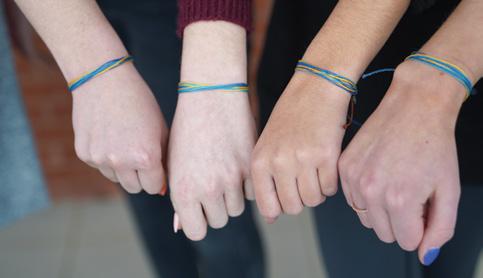
The girls model the Pura Vida bracelets they created in Claire’s memory.
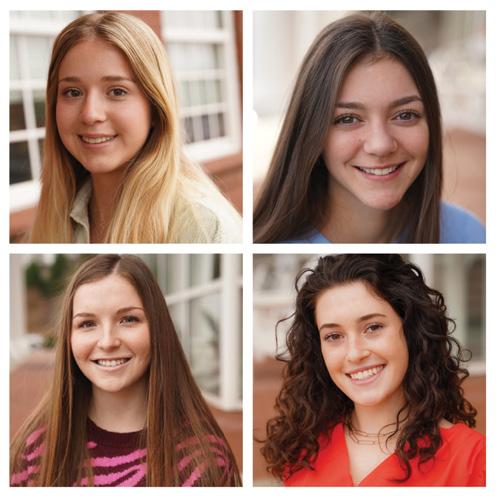
(l-r) Sarah Frances Combs, Ainsley Edmiston, Caroline Bentley, and Nadia Ristich
Up to the Task
Maya Goldsberry ’22 Reflects on Her Work with the Task Force to Confront Racism, Prejudice, and Bias
Over the summer, Cannon formed a task force with the purpose of creating a path of action to confront racism, prejudice, and bias. Task force members met several times to deliver a set of potential school-wide projects and initiatives in three specific areas: • Improving Cannon's ability to develop all learners' positive self-identities and ensuring that Cannon is a place where they find a real sense of belonging. • Engaging in and confronting issues of inequity, inequality, racism, prejudice, and bias within our area communities.
• Building a systematic capacity for reflective and generative dialogue in our school, our communities, and our world.
Maya Goldsberry ’22 was asked to be the student representative on the task force. Over the years, Maya has helped lead the Middle School “Let’s Talk Tuesday” affinity group, worked with the Black Student Affinity Group, and has been part of the Peer Support Team. Maya also helped organize and lead a peace march of 1,000 people—including many Cannon students and faculty—through the town of Davidson last summer. We sat down with her to ask some questions.
Q: Why did you feel it was important to get involved with the task force?
A: I had begun finding my voice with matters of inequality and inclusion, but I still needed to learn a proper way to enact change in my community. With this task force, I had the opportunity to work with adults and learn from them.
Q: Can you tell us a little bit about the process and how you contributed?
A: I was presented with this opportunity by Dean Tom Booker. (I had worked with him earlier in the summer as well.) I honestly didn’t know what to expect. First, we met to go over the task force’s purpose and planned when we could meet and how often. Mr. Horace Bryan (task force chair, parent, and former Trustee) assured us that no idea was too big. The purpose of this group was to present big ideas to the Board to improve Cannon life. He also gave us goals to keep in mind about belongingness. At the next meeting, we discussed our ideas. Mr. Bryan had us fill out templates (they consisted of what the idea was, funding for the idea, and who would be involved.) For the next few meetings, we presented our ideas to the rest of the group. I had to work outside of the general meetings with other people to combine our ideas and make them stronger. From there, we chose the best ideas to present to the Board of Cannon.
Q: What did you learn from this experience, as well as organizing the march last summer?
A: I learned how to work with people and reach out for help. As I said, we had to work with other people to combine our ideas to create a strong one. Also, over the summer, I worked with many different Davidson churches, businesses, friends, and emergency staff to have the march be successful. The march also taught me how to work with people to successfully achieve the same goal!
Q: Why do you feel it is important for other students to stand up for what they believe in?
A: It’s important for us to learn how to work on these situations and stand up for what we believe in now, because soon we won’t have the option to not. Soon, we will be the ones in charge of leading tasks forces, offices, businesses, or projects.
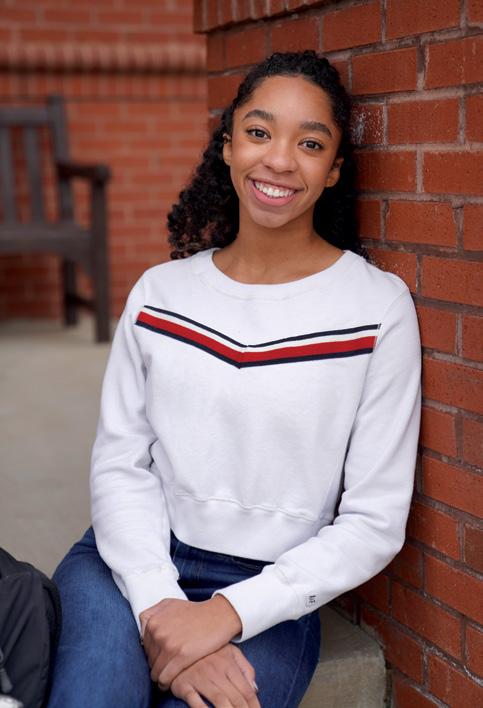
Lifer Lessons in Leadership
Evan Essex ’21 Sets an Example
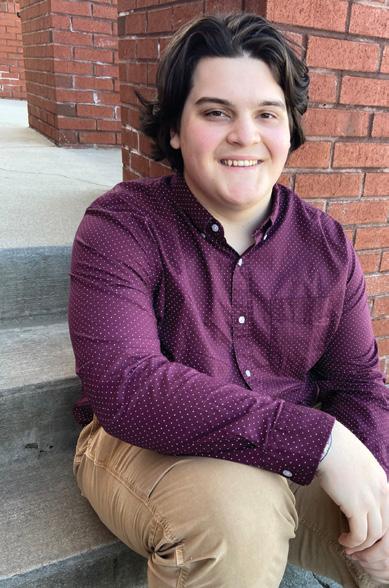
Evan Essex ’21 is set to graduate this spring, leaving the hallowed hallways of Cannon—and a long legacy of leadership. From serving as Head Boy for House Integritas to helping others on the Peer Support Team, Evan is someone who models our Cougar core values.
Q: You applied and were selected as Head Boy of House Integritas. What made you want to get involved with House Leadership?
A: I always viewed myself as a leader amongst my peers in team sports, however during my sophomore year at Cannon, I suffered an ACL injury. After surgery, I knew that sports weren’t an option until I recovered, so I refocused my talents on interests outside of football and wrestling. At that time the current Head Boy, a senior at Cannon and a close friend of mine, showed me the ropes of being a student leader. This inspired me to throw my hat into the ring for the Head Boy. At the time I didn’t think I had a chance, but I put in the extra effort and refocused my energies to achieve this goal.
Q: Wrangling that many Upper Schoolers can’t be easy. What has House taught you about leadership?
A: House Leadership has taught me that having a calm and collected approach to handling differing opinions has proved to be very effective. Being able to understand where someone is coming from intellectually and emotionally and responding to that makes finding solutions easier. Being able to collaborate with students together as a whole and understanding where the issues are brings better outcomes and actually solves the problem without creating a new one.
Q: You are also involved with Peer Support Team. How did you get involved and why? A: I am a naturally good listener and approach situations with empathy. I have also helped my friends with problems or just allowed them to vent their frustrations to me as a form of “free counseling” and by just being their friend. I knew that once I made the team that I would be given the opportunity to spread positivity and help my peers through problems around stress and other issues.
Q: What have you learned from that experience?
A: The Peer Support Team has taught me how to recognize the issue of toxic relationships amongst teenagers that can be found in simple friendships as well as romantic relationships. I was surprised at how much stress, negativity, and emotional drain is caused by this situation. I also became a better friend, and I found myself being able to move through different social circles with ease.
Q: As a senior, what else have you learned about leadership from your years at Cannon?
A: Being a part of these leadership groups has given me the courage to try to stand out amongst my peers, and the transition from being only an athlete to a student leader gave me immediate recognition from faculty and administration. I was surprised by how easily I fit into this new role. At a time when I thought my “athletic career” was over, I had to reinvent myself, and the struggle to do so has been very rewarding. Cannon provides many avenues to be successful. Although I couldn’t succeed on the field, I am glad that I could be accepted as a student leader.
Q: Is there anything else you’d like to add?
A: I’d like to personally give thanks to many members of the Cannon faculty. My advisor, Mr. Smith, constantly supported me through any decisions I made during my time in the Upper School. He was one of the first people to recognize my leadership abilities and urged me to pursue either Student Council or House Leadership. I would also like to thank Mrs. Hoffman; she helped me become a better Peer Support member over the past two years by giving me the opportunity to utilize my strengths through empathy by giving school presentations and by leading group meetings. Finally, I would like to thank Dean Booker for being so reassuring and supportive of my role as Head Boy this year. It has given me a lot of confidence which will help me transition into college.
One Smart Cookie
Riley Glenn ’30 Bakes up a Business
When you ask Riley Glenn how she got her baking business started, she will smile and say, “Well…it all started with my Grammy.”
“Grammy” is Riley’s grandmother, and the two started baking together when Riley was just a toddler. Early on they used box mixes, but as Riley grew older, she graduated to making cakes and cookies from scratch. She and Grammy started delivering goodies to friends—maybe someone who was recuperating from a surgery or laid up with an illness.
The idea for a business came about when Riley was at a neighbor’s graduation party. One of the guests had heard that Riley baked and offered to pay her to bake a cake for him. “That kind of freaked me out because I had never had anyone offer to buy a cake from me,” she said. But when she realized how much she enjoyed it—and how she could make some spending money— she decided to start researching how to start her own baking business. Her first stop—her friend India’s house. India was a fellow culinary artist, and the two decided to team up to create their own baking business, The Little Bakery.
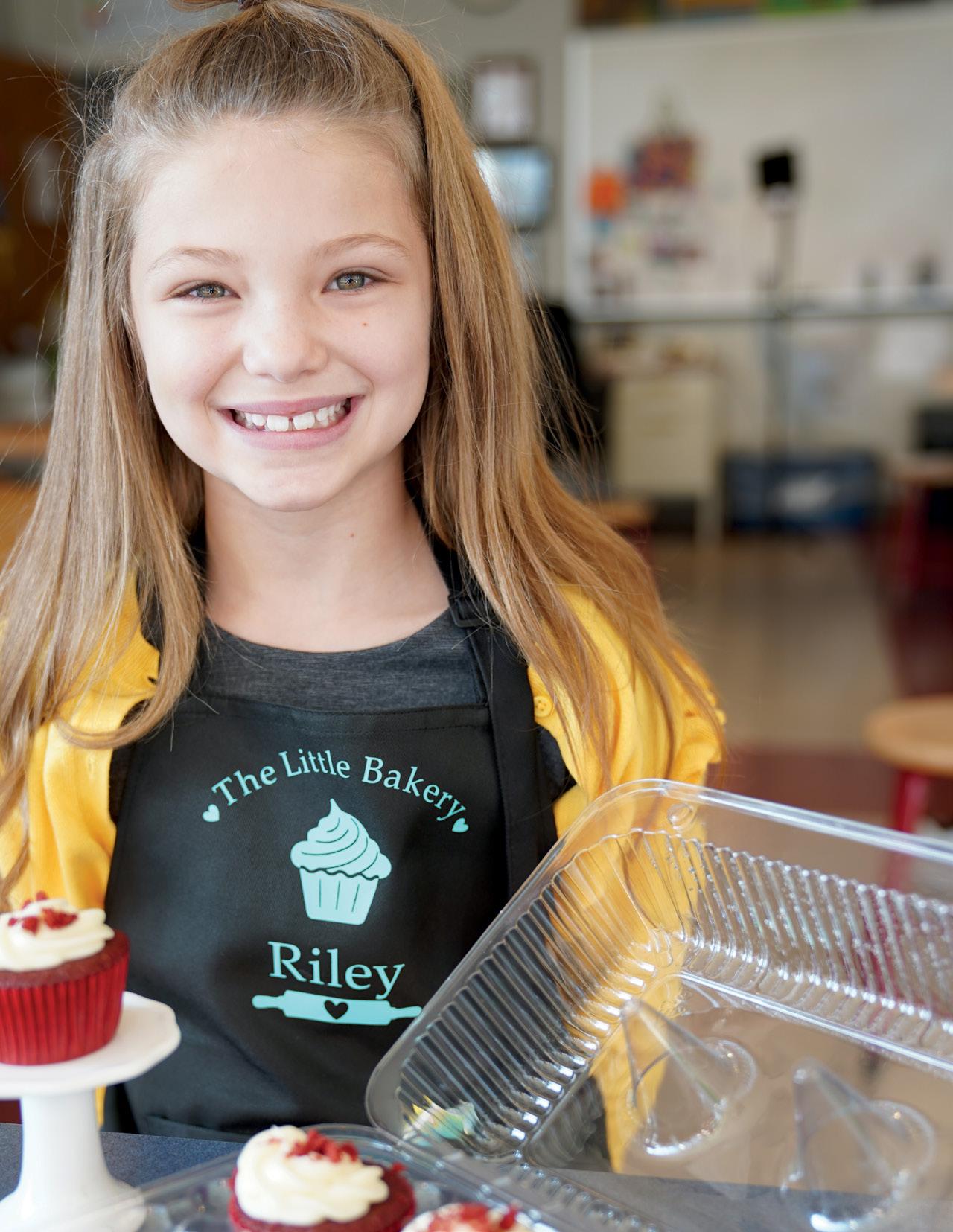
The first step? Marketing! Riley and India went doorto-door through their neighborhood, bearing cake samples and a menu with their information. Soon they were dishing out desserts for dozens of neighbors and pocketing profits along the way. “We got to know a lot of people this way, which was really nice,” Riley said.
There were definitely some stressful times along the way for the third-grader. “There was a time I was like, ‘whoops, I’m overbooked here,’ and the customer had to come over and get the order.” (Usually The Little Bakery uses DoorDash for deliveries.) But through experience, Riley learned how to balance her time so both she and her customers are happy.
Even with her new business booming, Riley still finds time to bake with her beloved Grammy. And no one will be surprised when she shares what she thinks is the best part of the whole gig—“licking the spoon!”
Interested in learning more about Riley’s business or ordering from her? Email her at thelittlebakery.nc@gmail.com.
Seeing Opportunity, Supplying Hope
Jahnavi Duggal ’21 Creates a School Supply Donation Program that has Stood the Test of Time
Sometimes, the smallest of observations can yield huge impacts.
Such was the case for Jahnavi Duggal ’21. During her early years in the Middle School, she would watch as classmates cleaned out their lockers on the last day of school.
“My parents always told me to bring my supplies home so I could sort through it all and see what could be reused. However, I noticed this wasn’t always the case for my classmates,” said Jahnavi.
“I saw many things, such as unopened packs of paper, gently used markers, and locker shelves being thrown away. By sixth grade, I decided to find a way to stop this from happening.”
The result was an annual school supply drive. All the new and gently used items collected were donated to Classroom Central, an organization that distributes the supplies to kids and teachers in need.
One of the biggest challenges Jahnavi faced early on was figuring out where to donate. “When I decided to do the supply drive, it was late April, which only gave me a few weeks before the end of the school year. I spent about a week searching, but I couldn’t find what I was looking for: an organization that donated to schools specifically in our community,” she said.
“As I began to worry about the time crunch, Mrs. Stephanie Ranson, my history teacher at the time, approached me saying she had heard about my project and had a few suggestions. Working together, we were able to find the organization, Classroom Central, and even figure out many of the logistics of the drive.”
Jahnavi has been able to see how her efforts have benefited others each year, when she and her family spend the day loading the boxes of items and making multiple trips to drop it off at Classroom Central. “The most rewarding aspect has been seeing the positive impact this project has had on the Cannon community,” she said. “Also, by reducing this wastage, I was helping protect the environment,” she said.
“When I first did the drive in sixth grade, so many staff members came up to me saying how much they loved the idea, and many also had questions,” Jahnavi continued.
“As I continued this project, students and teachers began saving their supplies for donation, and increasingly more items were collected each year. Teachers would even contact me personally throughout the year if they had items to donate. Everyone’s enthusiasm and curiosity are what inspire me to continue this every year.”
The process has also taught her about leadership. “I have learned that a leader needs to know when to delegate and when to accept help,” she said.
“Each year, it has been my responsibility to organize the drive, but I wouldn’t have been able to do so without the amazing support of Cannon’s staff. It’s my job to contact Cannon’s division heads and get permission for the drive, however, they make sure the teachers and students are notified and ready with their supplies. I am so grateful for everyone who made this project possible.”
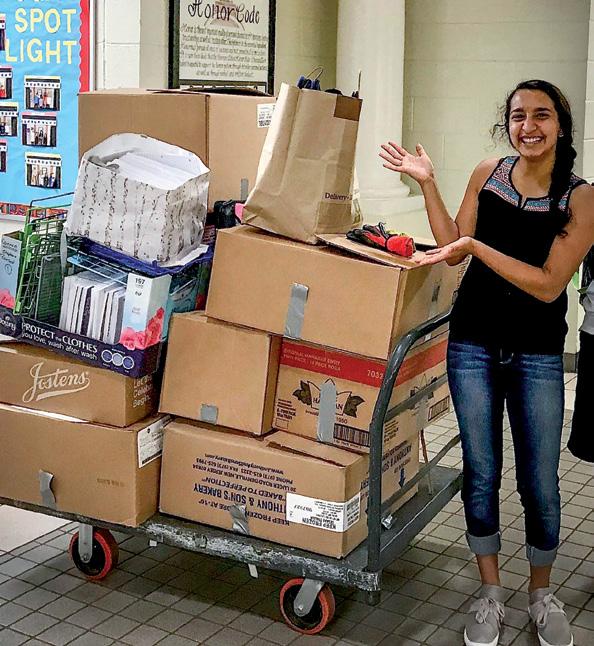
Interested in donating supplies to the cause? Contact Jahnavi at jduggal@cannonschool.org.
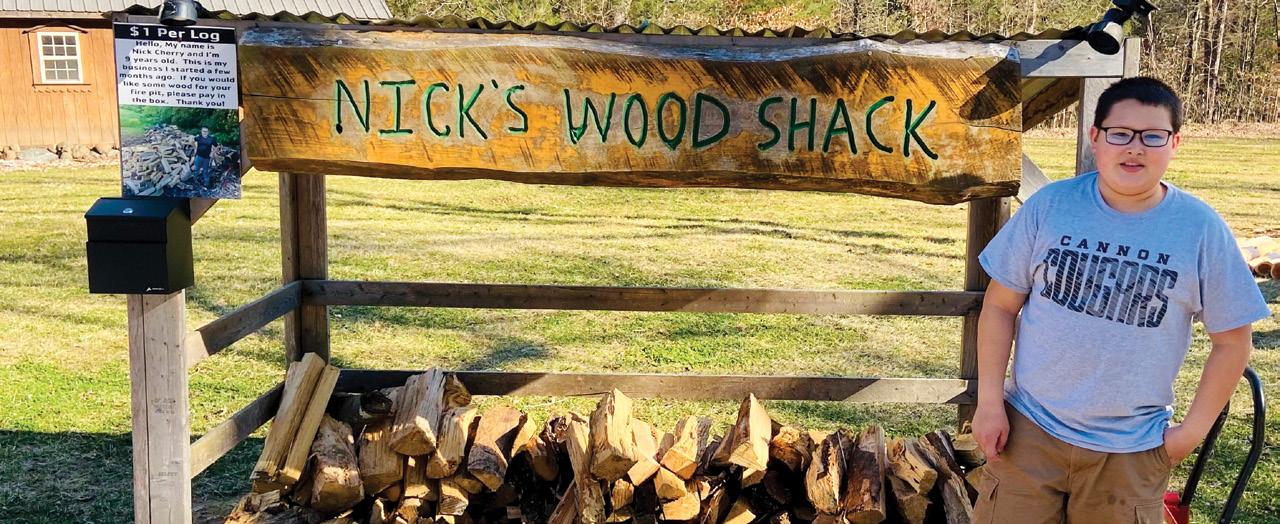
Branching Out
Nick Cherry ’27 Goes Out on a Limb with his Wood Chopping Business
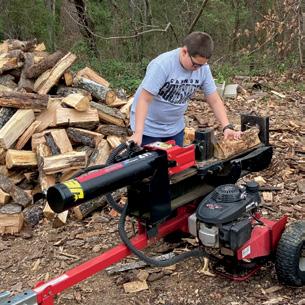
Lumberjack isn’t necessarily a moniker often heard in association with our students—but you could use it to describe Nick Cherry ’27! Nick has his own wood-chopping business, and what started as a small business has grown “tree-mendously” over the years.
Q: How did you get started with your wood-chopping business?
A: My wood chopping business, Big Nick’s Wood Shack, started when I was eight years old. I chop and sell wood from our farm, and we deliver truckloads of wood (about 2/3 of a cord). The business started one day when my dad came in and said to research firewood and how to split it. I have been chopping wood for about six years, but only selling it for about four.
Q: Your family also owns the Treesort, a private farm with rentable treehouses. Do you sell wood to people renting there? What about other folks?
A: We sell to anyone who wants good quality wood. We deliver to anyone who is no more than three hours away. I split wood about once or twice a week and we deliver about three times a week.
Q: What has this business taught you in regard to hard work and making customers happy?
A: My business has definitely taught me the importance of work ethic and to make sure my wood is dry for the customer. I give my dad a bunch of credit for this because he has taught me all I know. It has also taught me that I need to work hard and always make sure that I am on top of things.
Q: You recently hosted a Winterfest at the Treesort, which included a Young Entrepreneur’s Fair. Can you share a bit about that experience?
A: My dad and I had been to a mini entrepreneur fair at someone’s house, and we thought, “We can do that.” We thought tying it into Winterfest (a weekend in which the community was invited to tour the treehouses on property) was a good idea. We advertised on Facebook and Instagram, and it just started going from there. We had about fifty kids who came out to sell their stuff, and it was awesome to see.
Q: What has your business taught you about leadership?
A: My dad has taught me a lot, and I’ve learned that if you want to be your own boss and be successful, you really have to work.
Q: What is advice you would give other young entrepreneurs?
A: There are a lot of times when I don’t want to go and chop wood. My advice is, sometimes you don’t want to do something, but don’t quit. Keep on going, even when you’re tired. Eventually it will work out.
The Write Stuff
Sarah Leonard ’23 “Books” a Q&A with Famous Author
When Sarah Leonard '23 started a creative writing club at Cannon earlier this year, she spent most of her time getting the fledgling organization off the ground - recruiting members and leading meetings. Sarah was invested in the grueling aspects of getting together a passionate group of writers who could learn from one another - all while plugging through a global pandemic.
Sarah never dreamed that the very first author she invited to speak would be a literary darling with a current #1 New York Times bestseller. But that's exactly what happened when she reached out to Brit Bennett.
This “tale” actually started a couple years back, when Sarah was finishing Middle School. “The creative writing club came about because I had taken creative writing as my arts elective in seventh and eighth grade and found my writing skills as well as my creativity improve and grow exponentially during this time. I really began to love writing and I credit my creative writing teachers, Ms. Bethany Campbell and Mr. Fabio Hurtado, for instilling that in me,” she said.
“When I transitioned to Upper School, I was eager to select creative writing as my art because I wanted to continue to build upon my developing skills from those Middle School writing classes. I realized while filling out my course selections for ninth grade that creative writing was no longer an arts elective, and I was saddened that I could no longer have a selective part of the school day devoted specifically to writing,” Sarah said.
Sarah already wrote for Upper School newspaper The Cusp but was passionate about exploring other forms of written expression. “The summer before my sophomore year, I decided to send out a poll to all Cannon Upper School students just to see if anyone else would be interested in a club geared towards creative writing,” she said. Twenty-five students responded positively, and the Creative Writing Club was born.
Sarah knew she wanted to invite authors to speak, in hopes that club members could better understand the writing process. "One day, I was exploring the website of Brit Bennett, NYT best selling author who happened to write one of my favorite fiction books, The Vanishing Half, and I saw an option to write her via a messaging box," said Sarah. "My thought process was, 'Why not just send her a message to tell her about the club and attempt to persuade her to speak?' My message included details about the club, and some persuasive writing skills about trying to convince her that 'speaking to the next generation of writers was an amazing way to use her influence.' The next day I saw a message from her assistant in my inbox, and I was both surprised and very grateful that Ms. Bennett would be willing to speak with us."
Brit Bennett—whose critically acclaimed novel The Vanishing Half has spent, at press time, thirty-eight weeks on the NYT bestseller's list hardcover fiction—joined, via Zoom, a group of Cannon Upper School writers from the Creative Writing Club, The Cusp, and lit magazine The Ink. Sarah led the interview with thoughtful questions about the writing
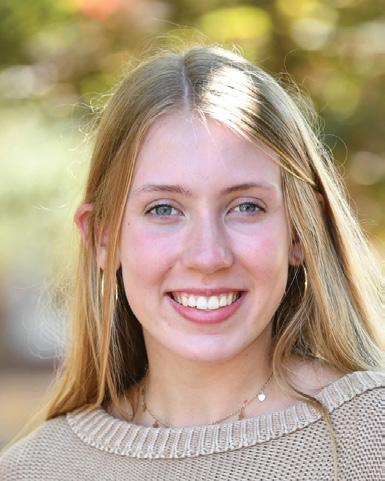
Sarah Leonard (above) and Brit Bennett (left)
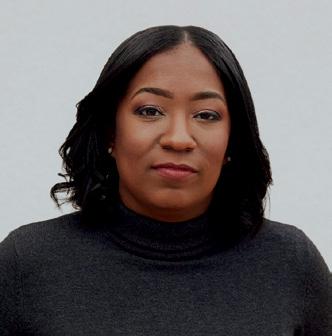
Author Pic by Emma Trim
process, where Brit procured story ideas, and how to bounce back from rejection.
Sarah quickly discovered that a lot had to happen before the interview to even make it happen. "I learned about how many logistics go into planning an event such as this, and how many e-mails, scheduling, and conversations go back and forth to set up a seemingly simple conversation. I also learned that you should take action on your goals and give your far-fetched ideas a shot because they might work out, and if they don’t, you will likely learn something in the process," she said.
The day of the actual interview, Sarah was joined, via Zoom, by a select group of passionate student writers and Brit herself. “I didn’t go into the interview with many expectations of how it would go, but I was definitely pleasantly surprised at how well it went,” said Sarah.
“I was not expecting Ms. Bennett to be so down to earth and authentic with each of her answers. I think I expected the interview to be a bit more rigid than it was, but it turned out that everything she said was very genuine and the interview flowed nicely, which was a relief!”
Creative Writing Club advisor Mr. Richard Smith concurs, and credited Sarah with the success. “The meeting went spectacularly well. Sarah was poised, professional, and prepared. She ran the entire meeting. She listened carefully and adjusted her questions in response to Brit Bennett’s answers. She sounded like a seasoned journalist, asked insightful questions, and provided the basis for twenty-nine minutes that the young writers in the room will remember for a long time. I don’t say this lightly: it was extraordinary.”
Sarah believes the entire process, from starting the club to the meeting with Brit, taught her about what it truly means to lead. “Being a leader takes confidence in your ideas and enough belief in what it is that you are working on or leading to give you the motivation to move forward,” she said.
“You also have to be humble enough to accept failure, whether that is an activity that wasn’t well received, having nobody show up to one of your club meetings, or getting told honest feedback by someone. Part of being humble is also being able to accept help, a crucial aspect of leadership. Ksenya Englesby ‘22, Taylor Geist ’21 (who help lead the creative writing club) and Mr. Smith contribute in many valuable ways to lead the club in the right direction.”
Sarah is currently in the process of reaching out to other authors, and hopes to set up more conversations with authors throughout the year and the rest of her time at Cannon.
